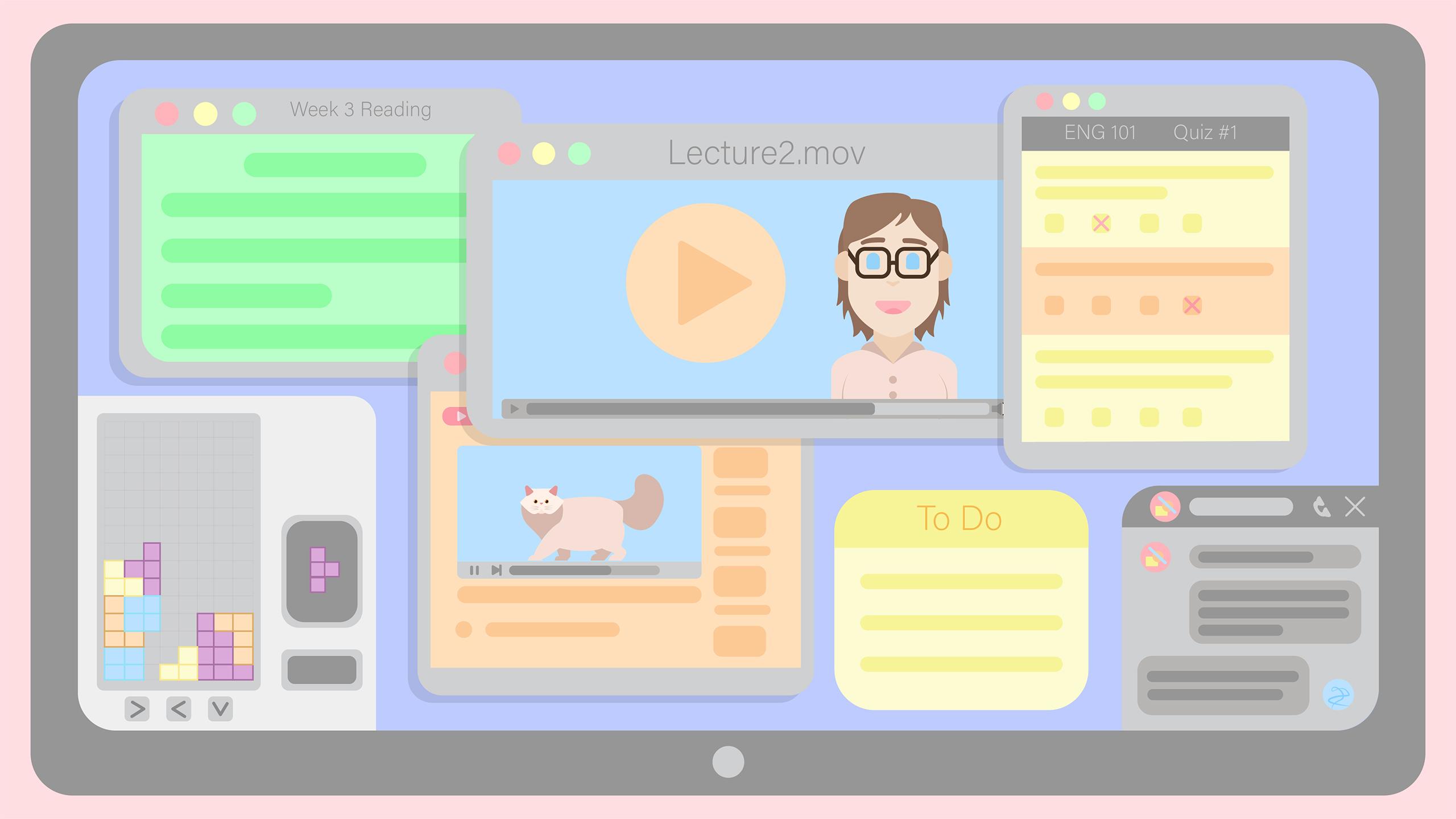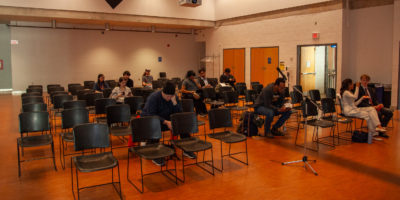By Thea Gribilas
As exam season approaches this semester, homework help services have started to appear more often on websites and social media pages offering to complete students’ assignments for them.
The cost of doing these assignments for students is more than just a fee—if students are caught cheating, they can face serious consequences, including expulsion.
“I just want everyone to know that it is not worth it,” said one Ryerson student who has used a homework help service and asked for anonymity out of fear of reprisal. “Just keep up with your work.”
The student says they made the decision to use this service last semester, after falling behind in their classes when Ryerson shifted to an online model in response to the COVID-19 pandemic.
The student reached out to an account they saw on their Instagram feed that was willing to write their exam for them. The student was charged $100 for the service for a two-hour un-proctored exam on Desire2Learn (D2L).
The Instagram account has since been taken down.
“I let [my work] slide, and that’s my fault,” said the student. “Suddenly it was exam period and I had so many lectures and it just felt like the easy way out.”
Although the student was never caught, they said they regretted using the service immediately after the exam, fearing that they would be caught and reprimanded.
“It’s better to do bad on an exam than to feel the pure fear you’re going to feel when you’re waiting to see if you’re caught,” said the student. “And the feeling of guilt afterwards doesn’t go away.”
These services are offered all over social media and the Internet. Prices range anywhere from $100 to $1,000 for a two-hour exam, often depending on the student’s desired grade on the exam and what course the student’s exam is in.
The Academic Integrity Office (AIO) at Ryerson said it is aware of contract cheating among students in an email to The Eyeopener.
Contract cheating is defined as the “use of a third party to complete work, with or without payment, for a student, who then submits work as their own, where such input is not permitted” on the AIO’s website.
If a student is caught contract cheating, a disciplinary notation (DN) is automatically placed on their academic record. The DN cannot be appealed.
A DN is used to track a student’s academic misconduct, but does not appear on a student’s official transcript. It instead leaves students ineligible for Ryerson scholarships or the Dean’s List for the academic year that the misconduct occurred.
As a minimum penalty, students also receive a zero on the fraudulent assignment and potentially the entire course. The student may also be recommended for expulsion or revocation of their degree.
Until the suspicion of academic misconduct has been resolved, students can’t drop the course.
If a student is suspected of academic misconduct, they can contact the Ryerson Students’ Union student issues and advocacy coordinator to represent them in a hearing of the student’s academic misconduct, and help them understand the process.
Another Ryerson student said they have used Chegg multiple times a week for help with graded homework assignments but have never used it to complete an exam.
Chegg is a paid service that provides students with online tutoring and homework help. It offers students a 28-day free trial. Once the free trial expires students choose either the basic version, costing $19.95 per month, or the premium version, costing $30 per month.
“It offers a second learning tool,” said the student who also asked for anonymity out of fear of reprisal.
Under Chegg’s terms of services and privacy policy, they are allowed to release a student’s information as part of an investigation of academic dishonesty.
“I don’t use it for exams for that reason, for assignments it’s just double checking your work,” said the student.
“Actually study for the exam,” they said. “You can’t really get far if you’re going to rely on Chegg especially when it goes back to in-person [learning], you’re not going to have it there.”
The University of British Columbia (UBC) recently launched an investigation into 100 students accused of cheating on a math midterm. The students are facing expulsion and are expected to receive a grade of zero in that specific class.
“The consequences of being caught cheating can seriously hinder your academic career,” said Matthew Ramsey, director of university affairs at UBC. “It’s simply not worth rolling the dice.”
Ramsey also urges students to think about their peers when considering committing some form of academic dishonesty.
“You’re not being fair to your fellow students,” he said. “Those who are undertaking their studies honestly and ethically deserve the time of their professors and they deserve to be in an environment that their work is not undercut by those who choose to avoid work.”
Ramsey said UBC has measures in place, including proctoring services, but they are really relying on students to hold themselves accountable.
“In the time that I’ve been at UBC I have not seen an allegation of this nature,” said Ramsey, who has been at UBC for six years. “So, it is quite unusual.”
Despite this, he finds that students generally are abiding by the academic standards set out by UBC but notes that these types of allegations can take time to work through so they can’t come to a definitive conclusion yet.
Ron Stagg, a professor in Ryerson’s history department said he has been happy to see that this semester, academic dishonesty has not been on the rise in the classes he’s taught. However, it’s tough to make that judgment until exam time comes around, he said.
“[Cheating] is always a concern, but my impression is it hasn’t been more prevalent this year,” he said. “Generally speaking, it seems that people are doing their own work.”
Stagg added that he thinks any students writing an exam during the exam period will find it challenging to use these services.
“It’s difficult for them to [use these services] because they don’t see the questions until the exam starts,” says Stagg. “They only have two hours to complete the exam so if they bring somebody else the question, will that person have the competence to do it?”
He also said he hasn’t seen it happening very frequently with essays but warns students that Turnitin has caught these kinds of things before.
The AIO has developed educational resources for Ryerson community members to promote academic integrity and prevent and avoid academic misconduct. These resources can be found on their website.










Leave a Reply